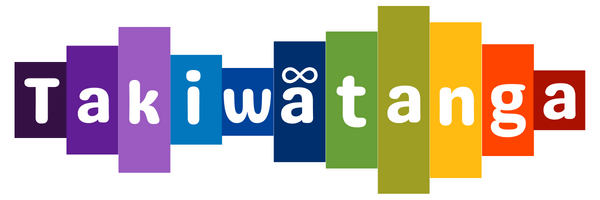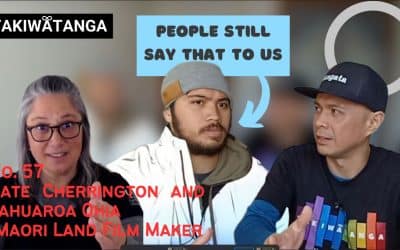I watched the presentation, Financial Planning for your autism family By Ryan Platt
Ryan is a Chartered Financial Consultant, a Certified Family Business Specialist, and a Chartered Special Needs Consultant.
He founded a Special Needs Plan in 2005 that is now a recognised firm in the US. He helped families with members who have special needs develop plans to support their future.
This episode is not financial advice. Any ideas mentioned in this content are key points that I have noted down during the autism parenting summit presentation… If you need support with your Family’s financial planning, reach out to a registered financial advisor near you i.
Intro:
This is Lloyd I AM and you are listening to Takiwatanga, love not cure, exploring autism one strength at a time.
Body:
There are a lot of things that parents must be on top of, like bills to pay, school activities with kids, and not to mention the journey of autism…
Note, this is not about me complaining about my problems… nor comparing my problems with others. Problems will always be there… besides, having problems or challenges is just part of being alive.
But!
It will be my fault as a parent if I do not do anything about my challenges, my problems, it is my fault if I stay silent and do nothing… if I do nothing about my kids’ future, about my autistic son’s future.
I know, this is not a panic, and there is no point to do so but we have to be pragmatic about it… Most of the time, and speaking out of the experience, we are focused more on addressing current problems. This is a fair statement because these are important and urgent things to address.
I also certainly believe that there are important but not urgent things in life that we also need to look at because only time will tell and these non-urgent things will come and bite us.
Let me give you an example.
One of the problems we have right now that I see urgent is having a teacher aide support for my child. I have talked about that ORS request in episodes 13 and 14… right now that is urgent for safety concerns. And because we are busy solving that problem, we neglect to look at other areas of our autism journey. Like what will daily living look like for my kids when they have grown up, especially for my youngest son? Do we need to involve the siblings in looking after the child in some way? If yes, how much of their time? Where will he live?
Now only time will tell before we realize that we failed to secure his future. He may have no abil;ity to do this on his own and we do not know what that would look like.m
Not that we should be anxious too much about the future but it would be great to at least have a plan in place for the best and for the sake of everyone in the family.
Someone once said and I love this phrase…
“If you fail to plan, then you are planning to fail…
If you are like me, we already have a lot of things going on with life…and perhaps securing the future of our kids is one of the things we commonly neglect and overlook. And then here comes the future! I wish I could have done that, I wish I could have done that…
But do not worry, it’s not the end of the world, we still have time. We can still navigate the boat, we can still look at what we can do today, right here, right now to correct the course and alter the future.
Here are the three key points I have noted down.
1 Current Story
2 Future Story
3 Action
Your Current Story
Every family is different. We have different needs to sustain our day to day living, nurture our kids, and survive today for the future.
The question you have to ask right now is, what’s your story today… What is your family’s story, right now.
Don’t start looking at the future and address any potential problems if you have no awareness of your story right now.
If you have problems with your health, food, or a place to stay. You have to solve those problems first.
You can not support your family if you need someone to support you. So it is crucial to be honest with yourself right now.
Abraham Maslow, the guy who introduced the Maslow Hierarchy of Needs in 1943 has this idea of the Theory of Human Motivation. What this means is you can not be motivated to self-actualise unless you address the most fundamental needs in life.
What this means is that you can not help support your family, your friend or anyone in your life if your fundamental self needs are not met.
What are the fundamental self needs?
These are food, health, sleep, or the feeling of being secured. These are foundational needs a human being needs to meet.
Let’s put this in context, if you have health problems, you can not focus on supporting your family if someone is looking after you. Simple as that.
So now what?
Know your story very well. Address all your fundamental needs as parents, parents need to be secure in order to provide security for the kids.
Now, if you have addressed your needs, it’s time to plot your next story or story of your future and share it.
Your Future Story
To plot your future story, you have to know your “why”, what, and how.
Your Why
Your why is your reason why you are doing what you are doing. Ryan said, if you plan for the future, you are securing the future of someone you love, especially those who do not have the ability to do this on their own. If we don’t do it, who will?
Most people don’t talk about planning because of the impression that this is about death. Parents leaving their kids. Or about sadness…
Planning is not about parents dying but it is about parents and children living the best life, having kids getting the best benefits entitled to them and having the best structure in place for the future…
Studies suggest that 15% of the world has an intellectual disability. If we are about 7.9 billion across the planet. 15% is about 1.18 Billion… and that’s a lot.
75% of adults with disabilities are isolated and they live with parents or carers.
While 52% of caregivers spend 40hrs or more per week caring for the disabled, this caring hour will consume most of a person’s entire week.
Yeah, for sure siblings love their brother and or sister but parent’s love is immeasurable…. So when a parent passes away, siblings have their own lives, family and problems. It is a huge huge responsibility to ask siblings to look after a disabled family member.
Knowing your “why” fuels you to make necessary actions so no one in the family suffers.
Your What
If your why helps you focus on what really matters.
Your “what” is basically knowing what is important for you and your family. It is about knowing what your child needs. It is about looking at options that can, in the future, support your child.. You don’t have to come up with a decision at this point.
It is about what structure you see fit. The goal is always going to put the right structure for daily living to happen even when you are gone.
Here are some key ideas on how to put your What in place.
First, breathe!
Just breathe and enjoy this journey. No decision has to happen at this stage. All you have to do is just think about what you want as a parent or carer for your child. It’s just about thinking about what the future would look like for your child.
Think what options are available? Who can be part of your journey? When to start? Again no decision needs to happen. These are just things you can start looking into.
Second Gather up your team
When you have visualised what you want for your child. It’s time to gather your team.
In episode 1, I mentioned that you have to find a team who will fight your corner!
Your team could be another family member, friends, groups who are advocates of autism, your local community… This team will be your support team, who will help and support you achieve what you have planned out..
Make a list of your team, who you think will be best in supporting your autistic child.
From top to bottom list the person or organisation and their roles,
- You can assign a lookout – This is the person who will do an oversight. Someone who can check in on a regular basis. Depending on the need, this could be on a daily basis, weekly or maybe monthly.
- Living arrangements or housing – This is about twhere it’s best for your child to live? How is the access to groceries be, how about access to hospitals, recreation and some essential things your child needs?
- Money management – can your child work to sustain his or her daily living? If only part time, how many hours per week can your child work? How will his finances be managed? If you leave a sum of money, who will manage that? How can your child get the maximum government benefits even if you left a decent amount of money?
- Legal structure – include this in your planning because this will also cover bullets 1-3.
Find an expert in your area who can help you build the structure with you.
Third Journal it
If you have the structure and you have talked to experts and have secured a plan for your child, journal it.
Write down your team list with roles and contact information. What medications are needed? When are the therapy days?
Who will be part of your child’s life and who will not. Who can access your child’s funds? These are the things you have captured in your legal requirements.
Once you have the plan written, share this information with your team! Let them be aware of the plan.
Your How
After identifying the why and what, it’s time for the How…
If you are just starting out on this path, it is not necessary to know how you are going to accomplish the plan…
Ryan said you are not going to have all the answers at this stage. As long as you have the base plan, the rest will follow. Most answers will come over time as you take action. This leads to our next important thing.
Your Action
It is great to have a plan but if you will not take action, your plan is just a piece of paper.
You don’t have to do everything at once. You just have to start with one action, that’s it. One small action where you can feel a sense of satisfaction then this will lead to another action and to another until you have accomplished many tasks.
As mentioned, you do not have to worry about the how, just start the process, this could be calling a family member, or a friend and talking about your plan. Calling an expert in your area. Or maybe, calling the school and asking what options are available for your child..
That’s it. No major drama at this point.
Just remember that planning for the future doesn’t have to be complex and worrisome.
Identify why you are doing this, what are your goals, and then the “how” will come as you navigate towards fulfilling your goals.
Define your current story to know what fundamental needs you need to address first before writing up your future story.
Write up your plan with any available options around, then gather up your team and ask for support. Show them what you are intending to do.
Lastly,
Take action… Start applying what you have planned out by doing small actionable steps towards fulfilling your goals.
Remember the phrase I mentioned earlier,
If you fail to plan, then you are planning to fail. I am going to add further to that phrase.
It should go something like this,
If you fail to plan, then you are planning to fail. But what is worse than having a plan without action…
You heard this phrase here first.!!!
That’s my take after watching Financial Planning for your autism family By Ryan Platt
Click that like button if you think you find this helpful
Smash that subscribe button so others can also find us
Ring that notification bell so you get notified when new content arrives.
End:




0 Comments